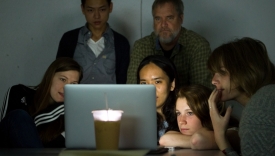History 172 - Opium to Omicron: Troubled Transformations of Modern China
M/W | 8:30 AM - 9:50 AM
(Offered as HIST 172 [AS/TC/TE/TS] and ASLC 172.) This survey of Chinese history examines the matrix of the internal and external forces and movements that have shaped modern China from the mid-nineteenth century to the present. During this period, the Chinese people dispensed with a form of government that had been used for three thousand years to form, despite various complications, a modern nation-state. China also went through a difficult transformation from a traditional society into a modern industrial nation. We will explore the seismic transformations in Modern China through major events beginning with the Opium War, the Taiping Rebellion, the collapse of the Qing dynasty and the establishment of a new Republic, the “New Culture” Movement, Communist revolution, War against Japanese invasion, the Chinese Civil War, the founding of the People’s Republic of China, China’s role in the Korean War, the Cultural Revolution, and post-Mao economic reform, all with comparative references to current events. Readings, which include a wide variety of documents such as religious and revolutionary tracts, eye-witness accounts, memoirs, and letters, are supplemented by interpretive essays and videos. Two class meetings per week.
Spring semester. Professor Qiao.
How to handle overenrollment: ASLC and History majors will have priority.
Students who enroll in this course will likely encounter and be expected to engage in the following intellectual skills, modes of learning, and assessment: Close analysis of historical evidence, which may include written documents, images, music, films, or statistics from the historical period under study. Exploration of scholarly, methodological, and theoretical debates about historical topics. Extensive reading, varying forms of written work, and intensive in-class discussions.



